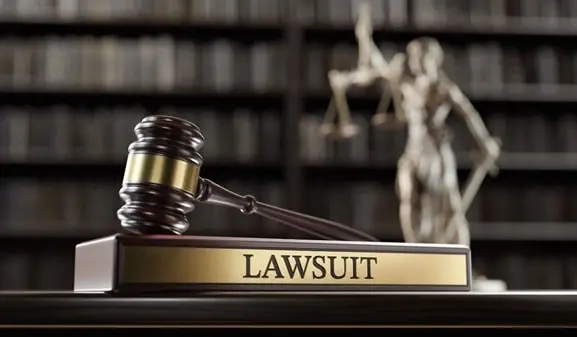The KRUD Tattoo lawsuit, centered around an ill-fated April Fool’s prank, has garnered significant attention for its combination of humor gone wrong and the legal complexities that ensued. James Bell, a participant in the prank, was enticed by a supposed reward of $250,000 to tattoo the radio station’s call letters, “KRUD,” across his forehead. This incident has sparked extensive debate over liability, the role of consent, and the responsibility media outlets bear when using extreme promotions to attract audiences.
Background of the Case: The Prank That Backfired
On April 1, 2017, James Bell engaged in an on-air discussion with KRUD, a local radio station notorious for pranks. The station’s DJ, Crazy Cyrus, reportedly led Bell to believe he would receive $250,000 if he tattooed “KRUD” across his forehead as part of an April Fool’s event. Bell followed through, only to discover after the fact that no payment was forthcoming; the station alleged it had never officially guaranteed any payment. Bell filed a lawsuit against KRUD, citing emotional distress, loss of job opportunities, and personal embarrassment, as well as the costs associated with possible tattoo removal and future medical expenses.
Legal Arguments and Court Proceedings
In court, Bell’s legal team argued that the station’s actions constituted a verbal agreement, and thus, the station should be held accountable. However, KRUD countered by arguing that their interaction with Bell was informal and that he had signed a liability waiver absolving them of any payment or damages. Additionally, they asserted that Bell should have understood the prank as a joke, especially given KRUD’s history of audacious stunts, such as the infamous “bridal gown drag race” and other outlandish public events.
During the trial, Bell was unable to produce concrete evidence, such as recordings of the on-air conversation, to substantiate his claim of a binding agreement. This lack of evidence led the judge to rule in favor of KRUD, emphasizing that Bell’s case lacked legal grounds for breach of contract and compensation.
Broader Implications for the Media and Entertainment Industry
This case brings forth pressing ethical questions within the media and entertainment industry. Pranks intended to generate public excitement, like the one orchestrated by KRUD, highlight the risks of pushing promotional boundaries. Following the case, there has been increasing discourse around the need for media outlets to set clear boundaries, especially when pranks or stunts could result in personal harm or reputational damage for participants. Moreover, the public outcry that ensued has increased awareness around the responsibility media platforms have in protecting individuals’ rights and personal safety.
Lessons in Consent and Impulse Decisions
The KRUD case underscores the necessity of informed consent in situations involving potential harm or long-term personal impact. Bell’s experience reveals the potential ramifications of rushing into decisions without fully considering the consequences, a lesson with broad applications in industries where body modifications are involved, such as tattooing and body art. The industry at large may need to consider clearer guidelines to protect individuals from making irreversible choices under potentially deceptive circumstances. For Bell, the lure of financial reward led to an impulsive choice, demonstrating how critical it is to secure written agreements for high-stakes decisions.
Potential Industry-Wide Legal Ramifications
Though the KRUD Tattoo lawsuit itself was unsuccessful, the case has sparked discussions about the need for industry-wide standards for promotions and stunts, particularly those that involve individuals making significant alterations to their appearance or taking on potential harm. If the court had ruled in favor of Bell, it could have established a precedent holding media outlets more accountable for participant safety. While the immediate case does not directly impact regulatory practices, it has drawn attention to the need for safeguards and possibly new policies or industry standards that prioritize consumer protection and ethical advertising.
Conclusion
While the KRUD lawsuit ultimately did not favor Bell, it brings valuable lessons regarding consent, liability, and ethical practices in the media and tattoo industries. As viral promotions become increasingly bold, this case serves as a warning to media outlets and participants alike about the importance of mutual understanding, well-documented agreements, and the lasting implications of seemingly harmless pranks. For consumers and professionals in high-risk industries, the KRUD Tattoo lawsuit emphasizes the importance of exercising caution, securing formal agreements, and considering long-term consequences before making irreversible choices


